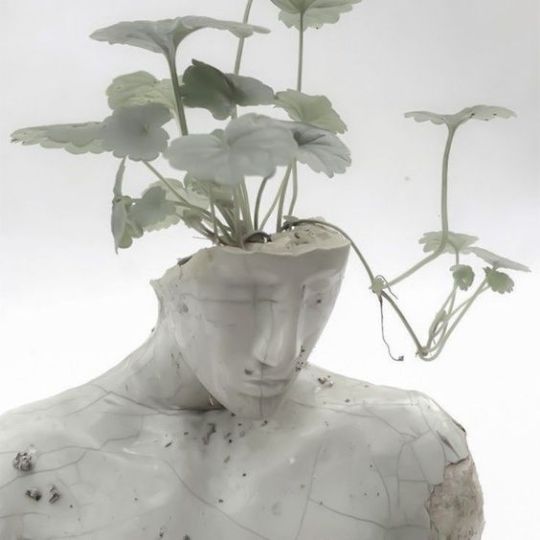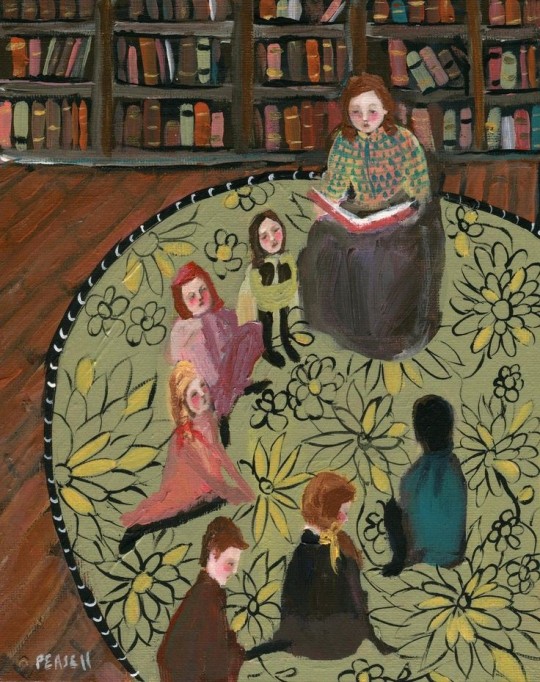#تعلم
Explore tagged Tumblr posts
Text

عندما تتخذ القرار الصحيح لا تبالي بقلبك ،، تألم" يوم، شهر ، سنه " بسبب قرار عقلي صحيح أفضل من أن تتألم بقية حياتك بقرار خاطئ لكي تُرضي قلبك !🪐🤎
#تقدير الذات#احترام الذات#تطوير الذات#تقدير#تقدم#تعلم#تشافي#طاقة#طاقة ايجابية#حياه#أنت#انسان#انسانية#مشاعر#علاقات#مقتطفات#نصائح#نصوص#مقتبس و صورة#توكيدات اليوم 🎐💕
26 notes
·
View notes
Text
سوف يتكرر حتى تتعلمه 📌 !.
22 notes
·
View notes
Text

وهُناك أحوالٌ يُمتحنُ فيها تسْليم العَبد لقضَاء ربه، فيُحجبُ عنْ رؤيةِ طرَف منْ أطرافَ الحكمَة، فعَليه أن يعتَقد جَازماً أنَّ لله رحمةً خفية تَحار منْها العُقول، وعاقبةً تليقُ بكَرم الذي لا تخِيب بِه الظُنون..
27 notes
·
View notes
Text







الذكرى السنوية الثامنة لتعلَّم ˗ˏˋ✩ˎˊ˗ 𝐓𝟑𝐥𝐚𝐦8𝘵𝘩 𝘈𝘯𝘯𝘪𝘷𝘦𝘳𝘴𝘢𝘳𝘺 ✧˖
مفهوم السنة : السَلامُ ⌠ 𝙋𝙚𝙖𝙘𝙚
شعار السنة : الشْعُور ⌠ 𝐹𝑒𝑒𝓁
"شعار السنة : "نهيمُ خَلفْ سلامٍ عَّز مطلبهُ
لون السنة : أبيضْ ⌠𝕎𝕙𝕚𝕥𝕖
ايموجي السنة : ( 🤍 )
83 notes
·
View notes
Text
من وسائل الارتقاء بنفسك أن تتعلم من أخطائك، لا أن تجلس تندب حظك، بمعنى ألا تقع مهدرًا وقتك في لوم نفسك، (لماذا فعلت، كان الأجدر ألا أفعل، لماذا حصل هذا، المفروض يكون كذا)، فتلك مضيعة للوقت، إذا أخطأت اتجه نحو تصحيح نفسك، إذا تعثرت تعلم كيف تعثرت وكيف ألا تتعثر مرة أخرى، لا تقل هذه النهاية، تعثرك طبيعي تلك هي البداية.
✍: @kharbashetkalam
https://t.me/kharbashetkalam

#خربشات قلم#شوية كلام#خربشات#شوية حكي#بوح#رمزيات#كومة حكي#فشة خلق#جرعة أمل#تمبلريون#غير حياتك#ذكر غيرك#نصيحتي لك#خلك إيجابي#أصدقاء تمبلر#أهل تمبلر#تمبلر بالعربي#تمبلريات#تمبلر#عرب تمبلر#مجتمع تمبلر#الخطأ#الصح#تعلم#لكل نهاية بداية#لكل جواد كبوة
12 notes
·
View notes
Text
و جاء عن ابن عباس رضي الله عنه قوله “ من قرأ القرآن قبل أن يحتلم فهو ممن أوتي الحكم صبيًا”
49 notes
·
View notes
Text
فيه نوعين من الناس في التعامل مع المشاكل والعلاقات:
1️⃣ صاحب التفكير المتدرج: لو حصلت مشكلة مع حد، العلاقة مش بتنتهي، بس بتقل شوية.. لو كانت 100% ممكن تبقى 80%، وبعدها ممكن ترجع تتحسن تاني.
2️⃣ صاحب التفكير الحدّي (الأبيض/الأسود): مفيش وسط! يا العلاقة كاملة يا مفيش علاقة أصلاً.. مشكلة صغيرة؟ يبقى خلاص، انتهت الصداقة، ضاع الشغل، مفيش أمل!
لو فكرت في حياتك، هتلاقي النوع الأول بيعيش براحة نفسية ��كتر، لأنه بيقدر يتعامل مع الاختلافات، ويدي فرصة للتغيير.. أما النوع الثاني، فدايماً في صراعات وخسارات مستمرة.
أنت من أنهي نوع؟ 👀

3 notes
·
View notes
Text


"حتى تعتاد على الأمور السامقة والمقامات العالية لا تصرف وقتك إلا فيما يعود عليك بالنفع: قراءة، مراجعة، سماع، كتابة..الإدمان على هذا يجعل تلك الأعمال سجية لك، ولذلك بعدها تنفر نفسك مما ينزل بها ويضعفها، وبالتأكيد تحتاج النفس شيئًا من الإجمام والراحة، ولكن ذلك استثناء مؤقت، فإياك وقلب المعادلة فتجعل الاستثناء أصلا .."
*د. عبد الله الشهري
#اقتباسات#مقتبس#اقتباس#اقتباسات مرفأ قلم#مقتطفات#مقتبسة#مقتبسات#مقتبسه#اقتباسات كتب#اقتبست لكم#قراءه#قراءة#القراءة#البحث العلمي#طلب العلم#طالب علم#طالب العلم#طالب#دراسة#تعلم#تعليم#العلم#علم#مجالس علم#مجلس علم
22 notes
·
View notes
Text
present perfect and past simple
The present perfect and past simple tenses are used to describe actions that occurred in the past, but they have different implications regarding the timing and relevance of these actions.
Present Perfect Tense
Form: has/have + past participle (e.g., "have done," "has seen")
Usage:
Unspecified Time: Used for actions that occurred at an unspecified time in the past. The exact time is not important or not mentioned.
Example: "I have visited Paris." (It’s not clear when the visit happened.)
Experience: To talk about life experiences without specifying when they occurred.
Example: "She has tried sushi." (Some point in her life, but the exact time isn’t given.)
Recent Past with Relevance to the Present: To describe past actions that have relevance to the present moment.
Example: "They have just finished their homework." (The action is relevant now, perhaps they are ready to do something else.)
Continuing Situations: For situations that started in the past and are still continuing or have an effect on the present.
Example: "I have lived here for five years." (Started living here five years ago and still live here now.)
Past Simple Tense
Form: past form of the verb (e.g., "did," "saw")
Usage:
Specific Time in the Past: Used for actions that occurred at a specific time in the past. The time is often mentioned or implied.
Example: "I visited Paris last year." (The action happened at a definite time.)
Completed Actions: To describe actions that are completed and have no direct relevance to the present.
Example: "She tried sushi yesterday." (The action is completed, with no current relevance.)
Series of Actions: To describe a series of actions that happened one after another in the past.
Example: "He entered the room, sat down, and started reading a book."
Past Habits or States: To talk about past habits or states that are no longer true.
Example: "I played football every Saturday when I was a child." (This was a habitual action in the past.)
Summary
Present Perfect: Focuses on the connection to the present, relevance, or unspecified time.
"I have finished my homework." (The homework is done now.)
"She has traveled to Japan." (At some point, with relevance to now.)
Past Simple: Focuses on a specific time or completed action in the past.
"I finished my homework at 8 PM." (Specific time.)
"She traveled to Japan last year." (Specific time or completed action.)
Understanding the context and relevance to the present helps in choosing the correct tense.
4 notes
·
View notes
Text
"إذا أردت لأطفالك أن يكونوا أذكياء .. إقرأ لهم الحكايات الخيالية ، وإن أردت لهم أن يكونوا أكثر ذكاء إقرأ لهم المزيد من الحكايات الخيالية".

#ألبرت اينشتاين#اينشتاين#مكتبة#كتب pdf#تمبلر#قراءة ممتعة#قراءاتي#مما قرات#مما راق لي#مما اعجبني#تعلم#ادب#تطبيقات#كتب تنمية بشرية#تمبلريات#اقتباسات#تنمية ذاتية
12 notes
·
View notes
Text
"أحبُ الشاي،
والكُتب، والرسائل
وشهر أكتوبر،
واللون البني،
والابتعاد بالقدر ذاته عن العالم كافَّة" 🤎🍂





#حب الذات#تطوير الذات#تحفيز#احترام#تقدم#تقدير الذات#تعلم#تواصل#تواضع#توازن#احتواء#كتب#قهوة#شاي#خريف#شتاء#هواء#طبيعة#ايجابيات#هدوء#🤎🍂🍁🍂☘️🥰#سفر#رسائل#توكيدات ايجابية📝📮💕💕
30 notes
·
View notes
Text
لكنها التجربة 🎞️ !.
16 notes
·
View notes
Text

¤إذهب إلى الله بضعفك، يأتيك بقوّته..
19 notes
·
View notes
Text
📃في مقولة شهيرة للكاتب الأمريكي إلبرت هوبارد بتقول
"To escape criticism, do nothing, say nothing, be nothing."
يعني "للهروب من الانتقاد، لا تفعل شيئًا، لا تقل شيئًا، لا تكن شيئًا."
لأنه بني آدم عادي بيخطيء ويصيب
النقد يبقى للفكرة، التصحيح يبقى للخطأ

3 notes
·
View notes
Text

Ilan Pappe dedicated this book: “To the Palestinian children, killed, wounded, and traumatized by living in the biggest prison on earth.” Ilan Pappé (Hebrew: אילן פפה, pronounced [iˈlan paˈpe]; born 7 November 1954) is an expatriate Israeli historian and political scientist. He is a professor with the College of Social Sciences and International Studies at the University of Exeter in the United Kingdom, director of the university's European Centre for Palestine Studies, and co-director of the Exeter Centre for Ethno-Political Studies. Pappé was born in Haifa, Israel.[1] Prior to coming to the UK, he was a senior lecturer in political science at the University of Haifa (1984–2007) and chair of the Emil Touma Institute for Palestinian and Israeli Studies in Haifa (2000–2008).[2] He is the author of Ten Myths About Israel (2017), The Ethnic Cleansing of Palestine (2006), The Modern Middle East (2005), A History of Modern Palestine: One Land, Two Peoples (2003), and Britain and the Arab-Israeli Conflict (1988).[3] He was also a leading member of Hadash,[4] and was a candidate on the party list in the 1996[5] and 1999[6] Knesset elections.
#israel is a terrorist state#stop the genocide#genocide in gaza#Gaza#Palestine#Israeli historian#Israeli Scientist#غزة#فلسطين#educate yourself#تعلم
3 notes
·
View notes